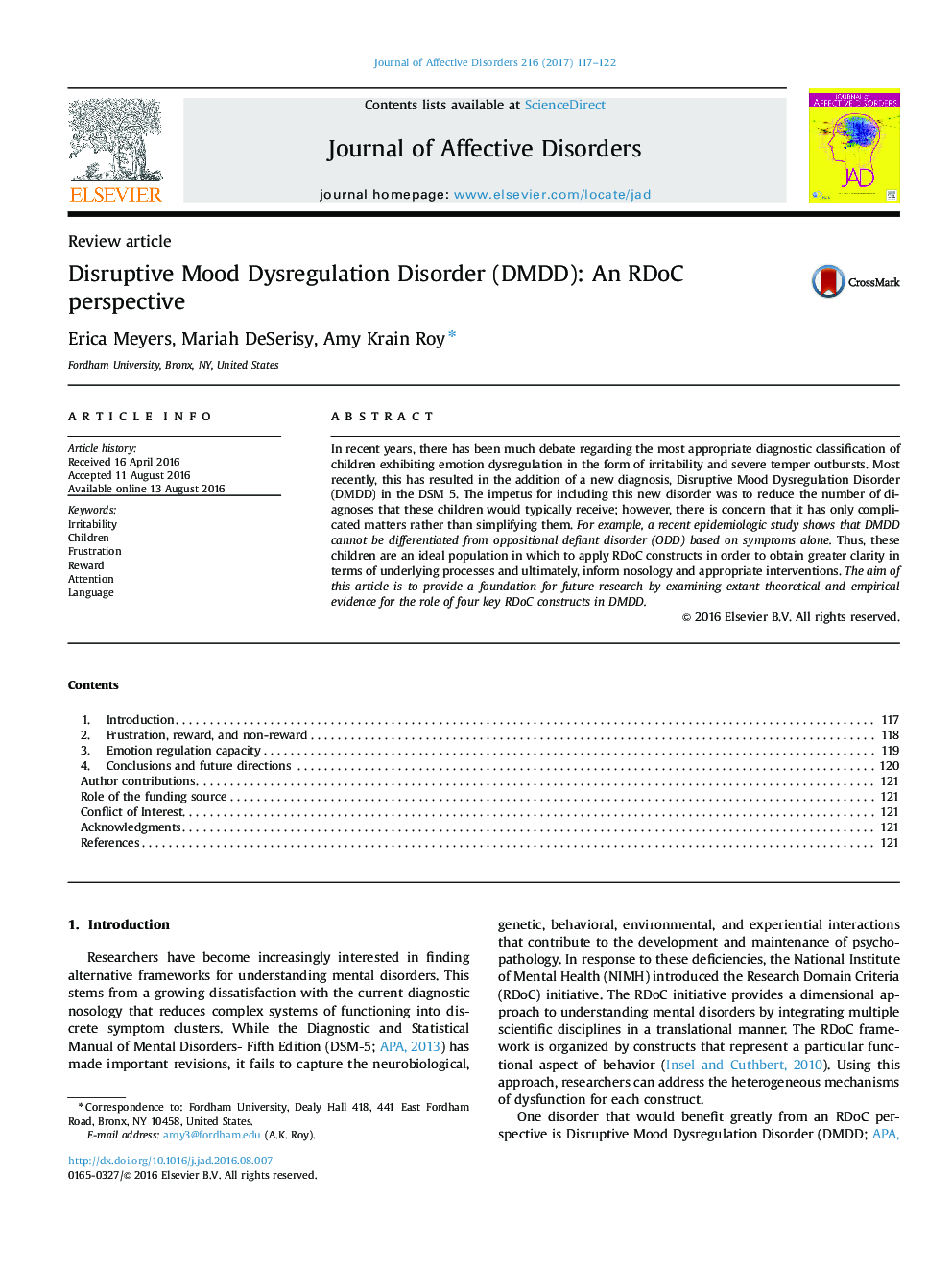| کد مقاله | کد نشریه | سال انتشار | مقاله انگلیسی | نسخه تمام متن |
|---|---|---|---|---|
| 5722313 | 1608109 | 2017 | 6 صفحه PDF | دانلود رایگان |

- Disruptive mood dysregulation disorder requires further careful examination.
- Reward-related RDoC constructs may be altered in children with chronic irritability.
- RDoC Cognitive domain constructs may explain deficits in emotion regulation in DMDD.
- Further research is needed to improve diagnostic clarity and inform interventions.
In recent years, there has been much debate regarding the most appropriate diagnostic classification of children exhibiting emotion dysregulation in the form of irritability and severe temper outbursts. Most recently, this has resulted in the addition of a new diagnosis, Disruptive Mood Dysregulation Disorder (DMDD) in the DSM 5. The impetus for including this new disorder was to reduce the number of diagnoses that these children would typically receive; however, there is concern that it has only complicated matters rather than simplifying them. For example, a recent epidemiologic study shows that DMDD cannot be differentiated from oppositional defiant disorder (ODD) based on symptoms alone. Thus, these children are an ideal population in which to apply RDoC constructs in order to obtain greater clarity in terms of underlying processes and ultimately, inform nosology and appropriate interventions. The aim of this article is to provide a foundation for future research by examining extant theoretical and empirical evidence for the role of four key RDoC constructs in DMDD.
Journal: Journal of Affective Disorders - Volume 216, July 2017, Pages 117-122